Study Abroad Guide to Accommodations in London
There are many different types of living situations in London for study abroad students. I studied abroad with a program provider called Academic Programs International (API), and they made our room arrangements for us. University-run programs also arrange the housing for their students. If you decide to study abroad on your own, you’ll need to make sure you are on top of applying for housing. I wanted to share my experience living in London while studying abroad, because it was different than in the United States. Hopefully it will help you have an idea of what to expect!
A quick note before going any further. For London specifically, the room arrangements will depend on whether you go during the summer, like I did, or during a semester. Universities in the UK offer Summer Schools for their students, as well as international programs with classes for students across the world, like I did. Depending on what type of experience you want, keep that in mind. Although I didn’t take classes with local students, I did get to meet students from all over the world.
Residence Hall
I stayed in a residence hall called International House, which is a part of the University of Westminster (the school I attended).
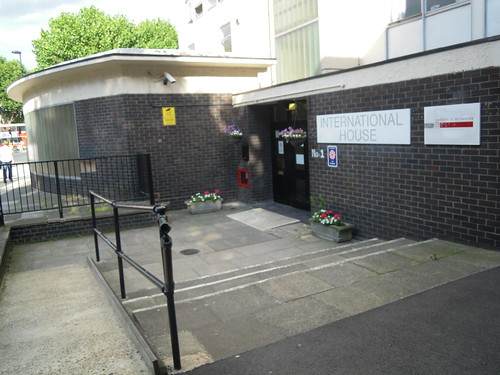
According to their website, “The residence is a purpose-built, 10-storey building located in a residential area with many of the rooms on the top floors offering panoramic views of London. All rooms are fully carpeted, with washbasins and fitted wardrobes. The bright, well-equipped kitchens and bathrooms are adjacent to the bedrooms and there is also a common room with a TV.” You can check out recent pictures of the hall by visiting their website (linked above). The hall has been renovated since I lived there.
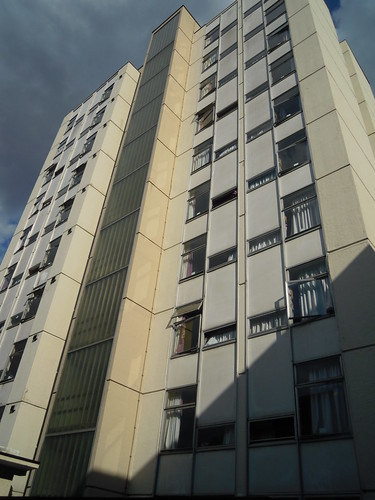
With that said…
“Purpose-Built”
This residence hall is a little different than some others in London, but very different than the United States. Many halls become hostels that are open to anyone during the summer months. According to Merriam-Webster, a hostel http://www.merriam-webster.com/dictionary/hostel is “an inexpensive place for usually young travelers to stay overnight.” The residence hall I lived in is dedicated to accommodating anyone throughout most of the year. Although a small group of us were actually attending the University of Westminster, many of the other people throughout the hall were in London for different reasons and different amounts of time. So here’s a great tip: places like this are a great option for anyone traveling to London that doesn’t want to spend a lot of money on their accommodations.
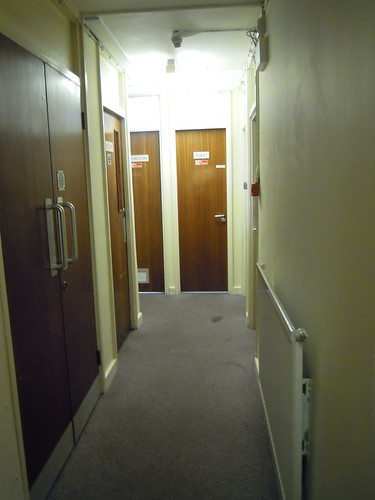
Location
One of the most interesting things to me was the location of the hall. The hall is located in a quiet neighborhood, not too far from central London, but far enough that it’s calm. Click here to see where it is located on Google Maps. I really enjoyed the area and felt fairly safe (there was a police station just down the street). However, the interesting part to me was that it was a 45-minute trek to class every day. Coming from the United States, where most campuses have everything together, this was very different. By the end of my time in London, it was just part of life and wasn’t even something I thought about anymore. Several years later,, as I compare my 45-minute trip to class to my 45-minute drive to work, I can easily say I prefer my London experience over my current experience, because I was able to use public transportation, which gave me the opportunity to interact with a variety of people. I also got a lot of reading done!
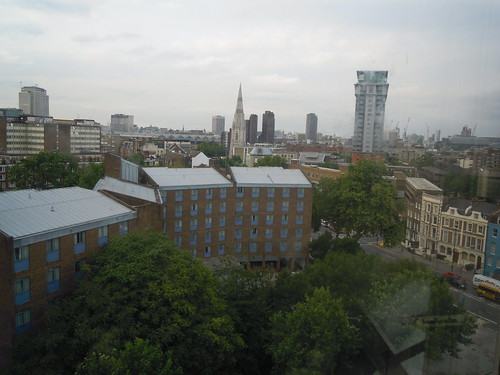
The Room
Like most dorm rooms, it had a bed, a desk, and a dresser. Instead of a closet, it had a fitted wardrobe, which is essentially a closet, but it is not built into the wall. There were also small compartments up top for extra storage. The end door opened to provide a full-length mirror with a sink.
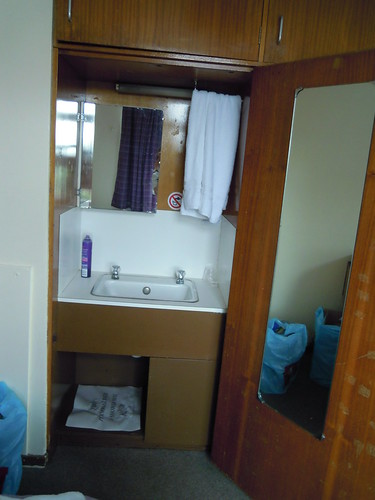
The most noticeable difference was not having A/C. I could open the window, but that was it. I ended up purchasing a fan because it was hotter than normal when I first arrived and having the window open wasn’t cutting it. I’m sure being towards the top of the building was part of the problem. Once I had my fan, I was able to enjoy the great view from my window without being too hot.
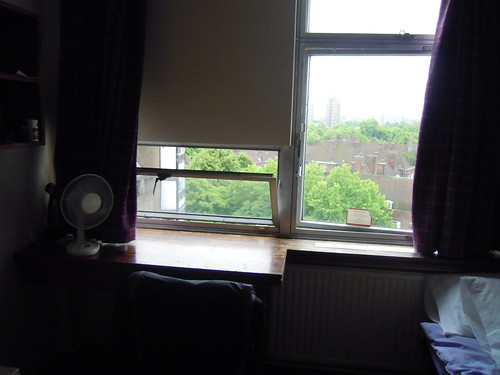
The Bathroom & The Toilet
Sharing a bathroom and shower is standard when living in a dorm in the United States. Having a separate room for the bathroom and a separate room for the shower was a new experience. The first thing I had to learn was calling it “the toilet” or “the loo,” instead of a bathroom. They are very literal, so bathroom is a room with a bath. Obviously, asking for a room with a bath was not going to help me find the toilet.
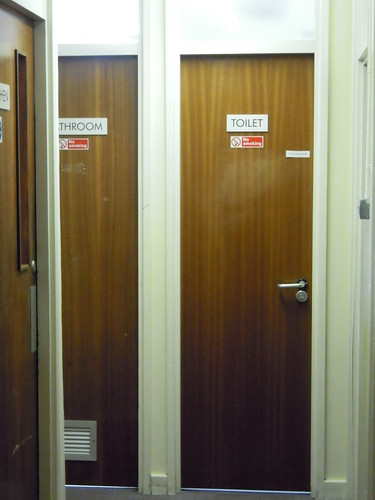
The Kitchen
The equipped kitchen was definitely a plus, compared to dorms back in the United States. In most cases, the residence halls have food that is served at specific times each day and you can have a small refrigerator in your dorm room, but you are very limited on what you can make. Having a full kitchen allowed me to make my meals and not always have to spend large amounts of money on eating out. Since I was there for the summer, I did choose to purchase my own plates, bowls, and utensils.
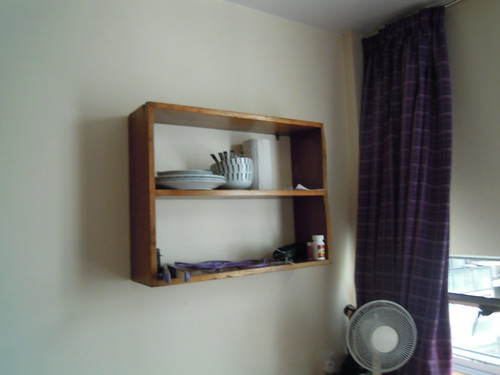
Other
There were also a washer and dryer on site. The hall also had a common room with a tv. There was a reception desk for questions or to pick up mail. The only real problem I had was dealing with the wifi. Hopefully, 5 years later, they have been able to improve the wifi situation. It was rather frustrating at first, but once I figured out how it worked, it wasn’t too bad. You could only connect one device at a time and once you disconnected one, you had to wait 10 minutes before it would let you connect a different one. So if I was on my computer and disconnected the wifi, I had to wait 10 minutes before I could connect my phone.
Although many things are similar about living abroad in London, there are still subtle differences (just as with the language!). Whether you are studying abroad or traveling abroad, you are there to learn something new, and those experiences are what help shape you. I hope this information is able to let you in on some insider information about what to expect when living abroad in London, as well as adapting to living in a new university housing environment.
Heather Robinette is the London Study Abroad Editor for Wandering Educators. She notes, "During the summer of 2011, I studied abroad for six weeks in London at the University of Westminster with Academics Programs International. I graduated from Kansas State University in Manhattan, KS in December 2012 with a Bachelor of Science in Business Administration. I currently work as a marketing analyst for a small company in central Texas. I currently work as a marketing coordinator for a real estate firm in Las Vegas, NV. I am also pursuing my MBA. While I was abroad in London, I was able to create many unforgettable memories that I will never forget! My study abroad experience helped me gain various skills, but above all else, it helped me to learn more about myself and the world around me." You can find her online at http://www.heatherrobinette.com/
Photos courtesy and copyright Heather Robinette, except creative commons Waterloo graffiti photo, adapted by Wandering Educators




















